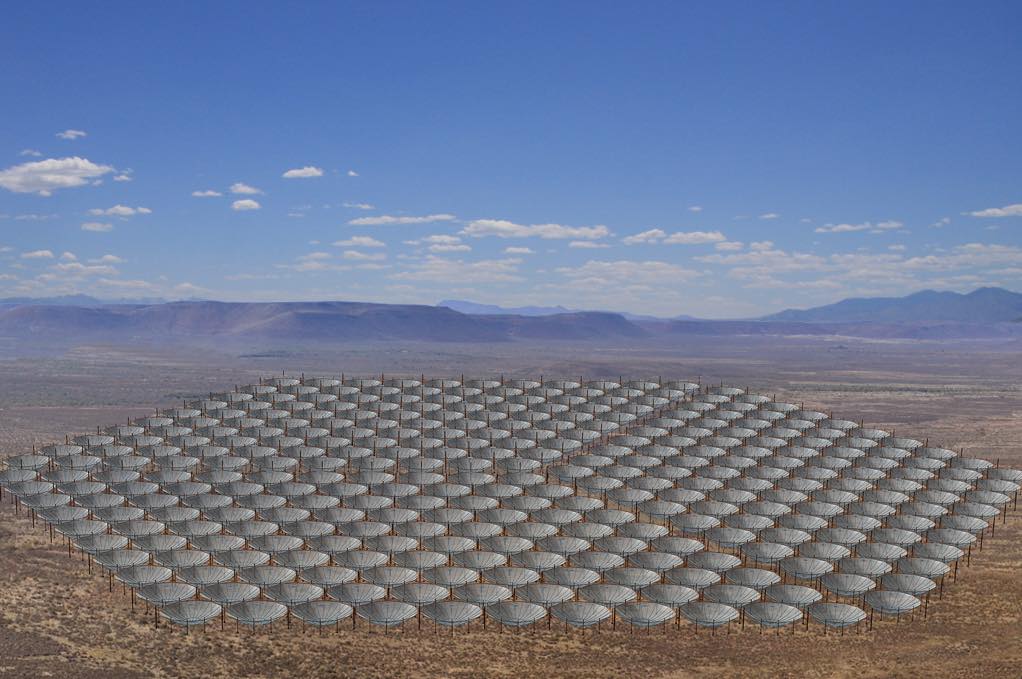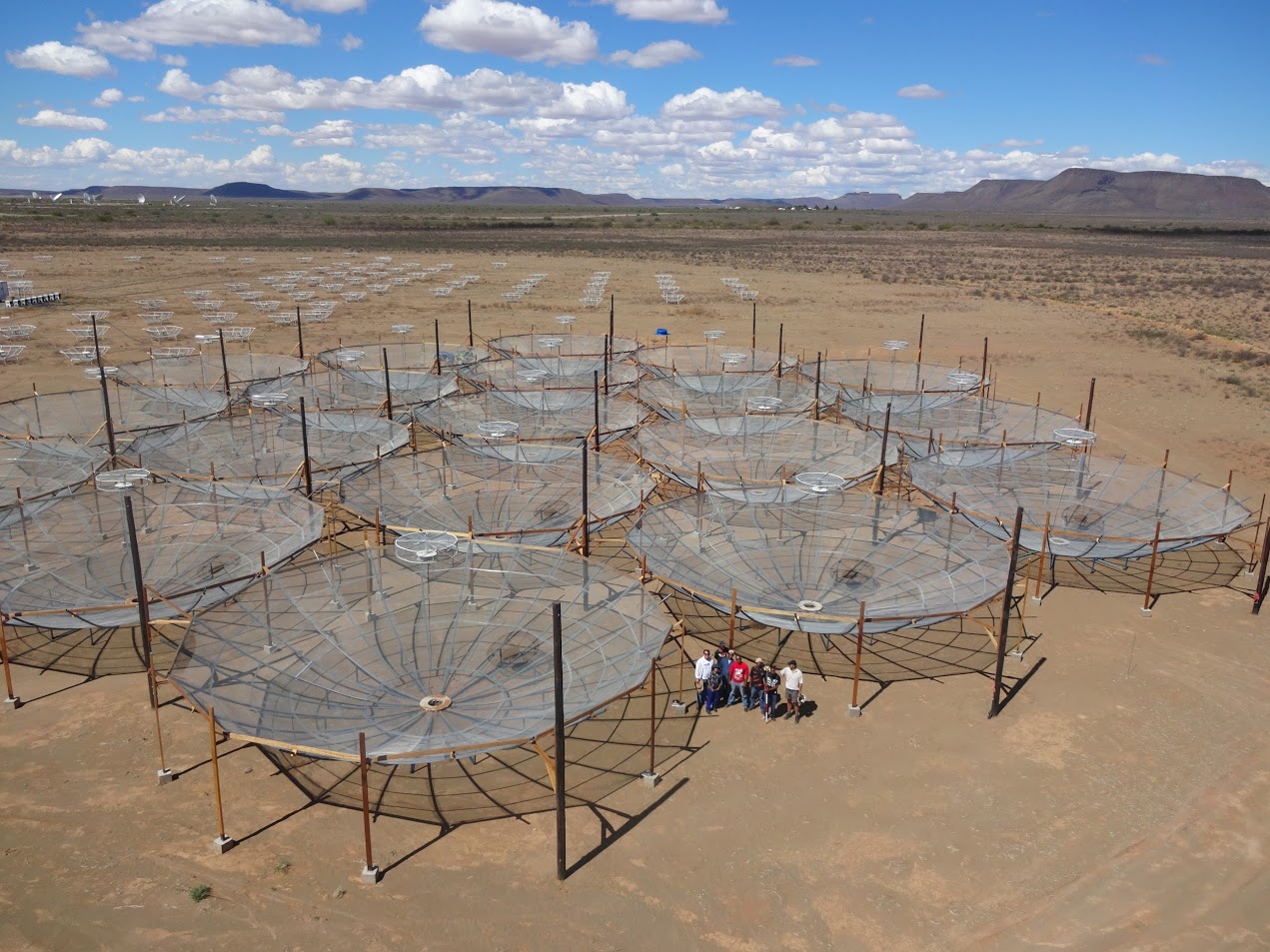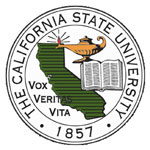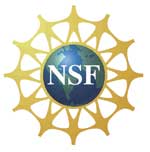Cal-Bridge HERA Astronomy Minority Partnership (CHAMP)


PHOTO (left): Design for a full 350-antenna HERA array. PHOTO (right): The first 19 HERA antennas constructed on-site in the Karoo Desert in South Africa.
Cosmology and Radio Astronomy research with CHAMP
The Cal-Bridge HERA Astronomy Minority Partnership (CHAMP) program is an opportunity within Cal-Bridge Summer to study cosmology and radio astronomy at one of seven universities, which are partnering on the Hydrogen Epoch of Reionization Array (HERA) project, a radio astronomy telescope in South Africa. The HERA array explores the large-scale structure in the baryonic universe by observing the redshifted "spin-flip" emission line of neutral hydrogen gas, emitted when the universe was roughly half a billion years old. It was then that light from the first stars was able to ionize the hydrogen from neutral atoms into electrons and protons—a period known as the epoch of reionization. The ancient light from this primordial neutral hydrogen gas has today been redshifted into the radio spectrum, requiring state-of-the-art telescopes like the one pictured above to detect its faint signal.
Cal-Bridge Summer/CHAMP scholars will work at one of the seven CHAMP sites, as part of a team of faculty, postdocs, graduate students, and other undergraduates, on all aspects of the HERA project, including:
- design and testing of critical subcomponents of the telescope and associated electronics
- writing computer code to analyze test data
- early data analysis, advanced pipeline development, and end-to-end data and analysis simulations
- studying radio-frequency interference
- building models of extended radio sources to improve image-based calibration
- modeling of expected results
Students with an interest in hands-on laboratory and computer-based work, while working to understand the underlying science of the project, are especially encouraged to apply to CHAMP. While prior experience with electronics and computer programming are not required, such experience should be indicated in your application. Barring such experience, a strong interest in learning such skills is critical to a successful experience in these opportunities.
Program Details
What is it?
Students will begin the summer attending a one week radio astronomy “boot camp” designed to give them some of the skills they will need to succeed in their research. They will then work for the next 9 weeks with faculty and staff at one of the CHAMP sites on HERA-related projects.
Selected students will receive a $6000 stipend for the full 10 weeks. In addition, participants will be provided with housing and will be reimbursed for travel from home or campus to their research site. CHAMP scholars will also receive support to attend the American Astronomical Society (AAS) meeting the January following the summer program. The 2023 CHAMP program runs June 5 to August 11, 2023 (10 weeks). Participants must be available during the entire 10-week period of the program.
Who should apply?
Applicants must be at least 18 years of age by the beginning of the program. Applicants must be enrolled at a CSU or California Community College at the time of their application. Participants may not have graduated from their 4-year institution before the beginning of the summer internship, but community college students may be in the process of transferring to a 4-year institution. Citizens, permanent residents, and AB540/DACA students are eligible to apply.
When and How to Apply
Applications are due February 1, 2023. To apply to the program, go to the Application Home Page. In addition, you must ask two faculty members (or others familiar with your academic or work background) to submit two letters of reference. Indicate their names, addresses, phone numbers, and e-mail addresses in your on-line application where appropriate.


This material is based upon work supported by the National Science Foundation under Grants DUE-1741863, AST-1636646, and AST-1836019.